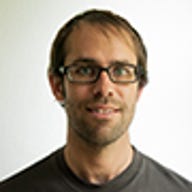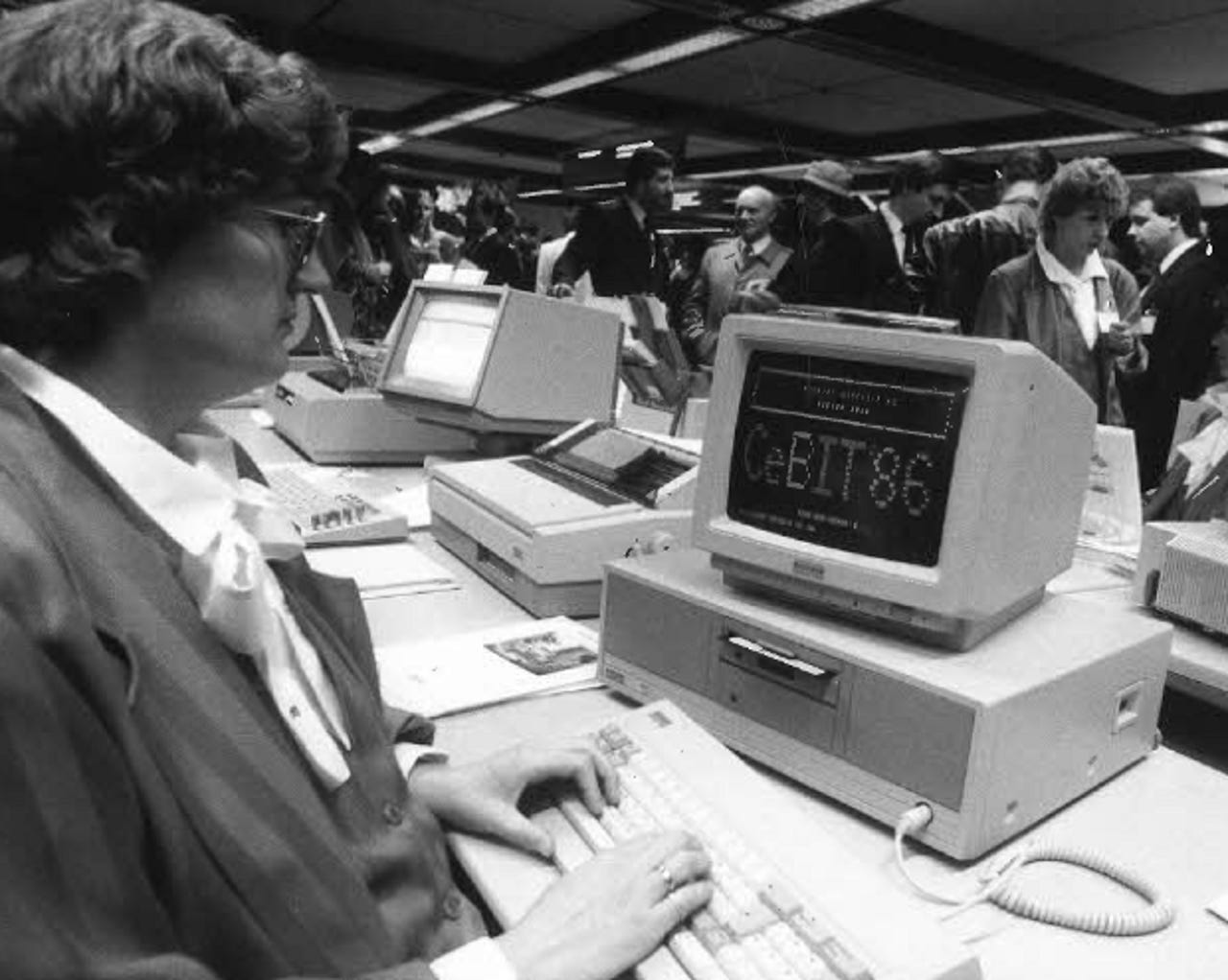Disneyland for technology: How CeBIT has kept pulling in the crowds for nearly 30 years


"The progress is so easy to measure, but very difficult to understand," Merkel said.
Indeed, just this week Apple launched a new MacBook that weighs just about two pounds, a far cry from those laptops of the early days.
As the advancement of technology presses ever onward, and this year's CeBIT opens its doors, it's worth taking a look back at the history of the trade fair, which has come to be one of the most significant annual events in the world for many technology companies.
Looking back
See also
CeBIT has its roots in the early 1970s, when it was the technology part of the Hannover Fair, an industry trade show. CeBIT was then, and is today, a B2B event, showing firms and corporate representatives new office technologies that promise efficiency through increased automation.
However, as personal computers exploded, so did CeBIT, and in 1986 the tech fair branched off from the main event. Interest soared; some 334,000 visitors attended CeBIT's first solo show. It's around this time that CeBIT started to become unglued from its B2B roots.
Looking back, it's easy to see how the growth in new technologies fuelled the explosive interest in the show. In the mid to late 1980s, computers were becoming more common, as were communication devices like modems. An increasing number of users were engaging with technology that, in the not too distant past, had existed only in office buildings.
An aside: while it's in German, this video of some of the highlights of the 1987 CeBIT is pretty fun: it hypes a CD-ROM that can store the equivalent of "up to 300,000 typewriter pages," along with a briefcase-sized, 20-pound laptop and a mobile phone that's the size of a brick.
These products and others - which were, at the time, quite novel - began attracting a wider range of people than just corporate stiffs looking to make their offices more efficient. In 1993, when CeBIT attendance was at around 660,000 (more than Hannover's entire population), the German public broadcaster ARD reported that "this is a paradox," when comparing the serious nature of the IT sector with the fair's "Disneyland" atmosphere.
General interest in the fair arguably reached a peak in 1995, when the then-39-year-old Bill Gates used it to introduce Windows 95 with a slickly produced commercial about how "cyberspace" could help protect the world against art smugglers.
"You'll see, in ten years this technology will fit naturally into our lives," Gates said during his introductory speech, underestimating the longevity of Windows 95.
"The halls were bursting at the seams," the German news magazine Stern reported at the time. Indeed, some 750,000 people attended CeBIT that year.
After that, CeBIT was repositioned to get back to its B2B roots. Ticket prices were raised significantly, and the general-interest stuff like PCs and internet products were relegated to a short-lived spin-off fair called CeBIT Home.
CeBIT 2015
Where CeBIT still differs from other technology fairs is its continued focus on the B2B space. "In other shows you can see the product, like a refrigerator or a washing machine that's connected to the internet," a CeBIT spokesperson told ZDNet.
"But this is not the pool for creating value and money for companies. At CeBIT you can see everything that you need for the Internet of Things, the IT backbone, and the data analytics tools, and you can see also the big datacenters."
Today's CeBIT attracts around 200,000 visitors each year. This year's theme for the show is 'd!conomy,' an unwieldy mashup of "digital" and "economy".
At this year's CeBIT, some 3,300 exhibitors will be in attendance, including IBM, Samsung, Alibaba, and more. In terms of smaller companies, a new, larger space will be available for startups to display their wares - representatives from venture capital firms are usually on hand to survey new investment opportunities.
It takes some 2,500 employees and volunteers to put the show on; about 3,600 wi-fi access points will be available for guests to use.
Despite its age, CeBIT show no signs of slowing down, with a number of tech figures taking to the stage: Günther Oettinger, the EU's commissioner of digital economy and society; Xiaomi's founder Jun Lei; Kevin Mitnick, Glenn Greenwald and Edward Snowden will all address the crowds, with Merkel attending the opening ceremony.
See CeBIT through the ages